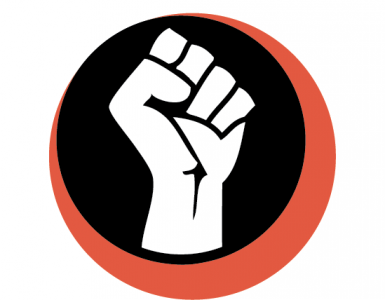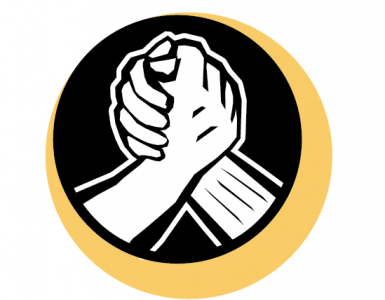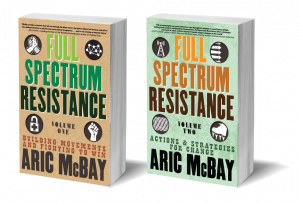What principles guide successful strategy and allow movements to integrate the different capacities in this book?
In a nutshell: Strategy is how movements use what they have to get what they want; to succeed they must build winning campaigns, find allies, develop capacity, and learn how to devise and improvise strategy.
| In this chapter: | |
| Site 41 – Activists spend more than twenty years trying to stop a garbage dump from being built on a vulnerable aquifer—things change when settlers and Indigenous people join together for direct action. (p. 579) | |
| Anatomy of a Campaign – To build a winning campaign means combining key capacities—from recruitment to logistics—with action, in the right ratio. (p. 583) | |
| Strategic Trajectories – To make big progress we can build on a series of smaller wins and intermediate victories. (p. 585) | |
| American Temperance Movements – Feminists and temperance activists in the late 1800s and early 1900s fight the scourge of alcohol; they strike a difficult balance of between militants and moderates, and use the full spectrum of resistance to win prohibition (only to find that winning is complicated). (p. 592) | |
| Mid-19th-Century Chinese Rebellions – Colonial exploitation and ecological disasters provoke a series of rebellions that explode across Qing dynasty China; they might have won if the different factions had been able to cooperate. (p. 598) | |
| Alliances and Coalitions – What makes for a successful coalition? Shared ideals, bridge builders, tangible goals, and a crisis, among other factors. (p. 611) | |
| Strategic Capacity – What makes a group able to create and recognize good strategy? The history of the United Farm Workers shows us the key elements of what Marshall Ganz calls strategic capacity. (p. 616) | |
| Devising Strategy – How can you come up with good strategy for your group? Some suggestions and starting points. (p. 629) | |
Movements and groups in this chapter:
Featured: Beausoleil First Nation (Anishinabe Kweag), WYE Citizens, American Temperance Movements / Women’s Christian Temperance Union (WCTU) / Anti-Saloon League, Taiping Rebellion, Nien Rebellion, United Farm Workers / National Farm Workers Association, Agricultural Workers Organizing Committee. Discussed: Uyghur Rebellion, Miao Revolt, Spanish Coalition for Jobs (Chicago), Pittsburgh’s Alliance for Progressive Action. Mentioned: African National Congress, Irish Independence Movements, Chinese Communist Revolution, Che Guevara’s Bolivian Guerrilla Movement, Students for a Democratic Society, Sandinistas, Green Corn Rebellion, Student Nonviolent Coordinating Committee, Black Panther Party, Suffragists, Community Environmental Legal Defense Fund, EarthFirst!.






